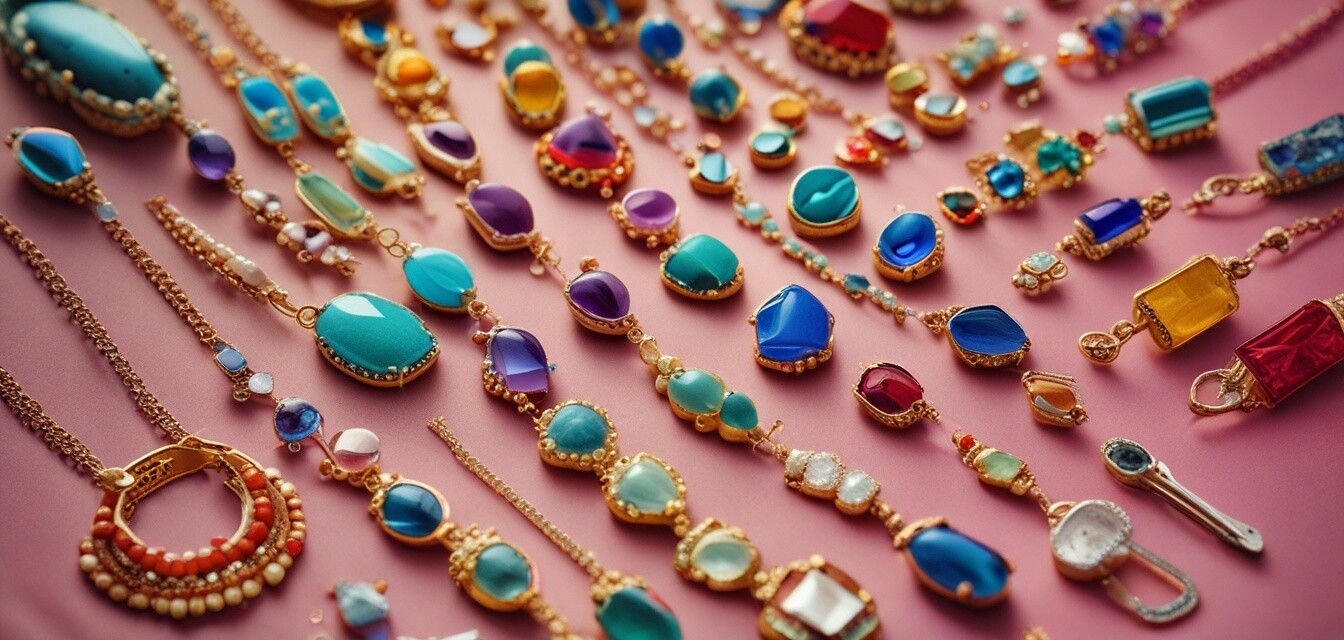
The best ethical jewelry for festivals
Key Takeaways
- Ethical jewelry options are increasingly available for festival-goers.
- Choose materials that are sustainable and sourced responsibly.
- Consider the cultural significance of jewelry styles when selecting pieces.
- Accessorizing with ethical jewelry can enhance your festival experience.
- Supporting artisans helps local communities and promotes sustainable practices.
As festivals approach, many people are eager to express themselves through vibrant outfits and unique accessories. When choosing jewelry for festivals, it's essential to consider not only the style but also the ethical implications of your purchases. This guide will introduce you to the best ethical jewelry options that will make you stand out while also supporting sustainable practices.
Why choose ethical jewelry for festivals?
Festivals are more than just celebrations; they are opportunities for self-expression and connecting with others. Choosing ethical jewelry means more than just looking good—it's about a commitment to sustainability and supporting artisans around the world. Here are a few reasons to consider ethical jewelry:
- Sustainability: Ethical jewelry is typically made from materials that are sourced in an environmentally friendly manner, reducing the impact on the planet.
- Support for artisans: Many ethical jewelry brands work directly with artisans, ensuring fair pay and promoting local craftsmanship.
- Unique styles: Ethical jewelry often features one-of-a-kind designs that reflect cultural heritage and stories.
Top ethical jewelry options for festivals
When it comes to accessorizing for festivals, here are some options that shine both stylishly and ethically:
| Type of Jewelry | Description | Why It's Ethical |
|---|---|---|
| Stone Earrings | Colorful gemstone earrings in various styles and shapes. | Sourced from ethical mines, often handcrafted. |
| Eco-Conscious Jewelry Sets | Coordinated sets combining necklaces, bracelets, and earrings. | Made from recycled materials and sustainable practices. |
| Upcycled Jewelry | Jewelry crafted from repurposed materials, giving old items new life. | Reduces waste and encourages creativity. |
| Sustainable Necklaces | Necklaces made from ethically sourced gemstones or recycled materials. | Helps minimize environmental impact during production. |
| Eco-Friendly Bracelets | Stylish bracelets made from natural or recycled materials. | Supports social responsibility initiatives. |
How to style your ethical jewelry for festivals
Accessorizing with ethical jewelry can elevate your festival fashion. Here are some tips to style your pieces:
Tips for styling
- Layering: Mix and match different lengths and styles of necklaces for a bohemian look.
- Bold colors: Choose colorful earrings that pop against your outfit.
- Natural textures: Incorporate materials like wood or hemp to add an earthy vibe.
- Statement pieces: Use larger pieces as focal points, balancing with simpler items.
- Cultural significance: Be respectful and mindful when choosing jewelry that holds cultural meanings.
Where to find ethical jewelry
There are many places, both online and offline, where you can purchase ethical jewelry. Here are some recommendations:
- Ethical Stone Earrings - A variety of choices that reflect ethical sourcing and craftsmanship.
- Eco-Conscious Jewelry Sets - Perfectly curated sets that save you time in selecting and styling.
- Upcycled Jewelry - Unique pieces that contribute to sustainability.
- Buying Guides - Insightful articles about making informed jewelry purchases.
- Sustainable Necklaces - Discover necklaces that tell a story.
Conclusion
Ethical jewelry is the perfect choice for festival-goers wanting to make a statement while supporting sustainable practices. By choosing pieces that embody ethical values, styles that speak to personal identity, and supporting artisans, you ensure that your festival experience is memorable and responsible. Embrace the colors, styles, and stories of ethical jewelry as you celebrate in style.
Pros
- Supports ethical and sustainable practices.
- Unique styles that often reflect cultural heritage.
- Contributes to fair pay for artisans.
Cons
- May be more expensive than traditional jewelry.
- Availability can be limited depending on locations.